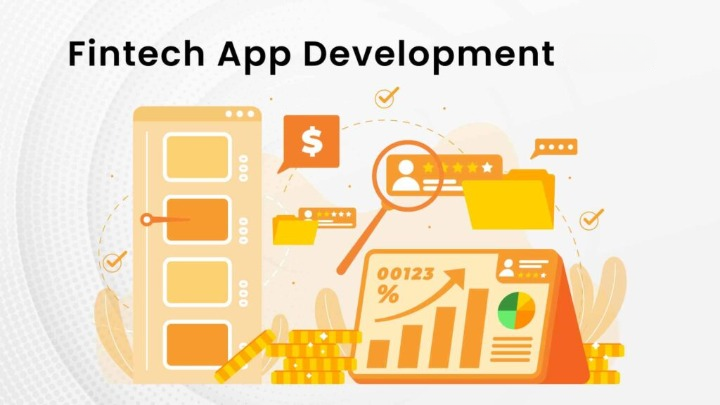With a tech-savvy population and great aspiration-driven government programs such as Vision 2030, the need for innovative financial solutions is on the rise. At the heart of it is open banking, integrated by a powerful fintech app development company. It is not a technology but an enabler to unlock the new golden age of financial empowerment. Open banking enables the user to control financial data. We will now see how the company goes about implementing open banking to bring the next generation of fintech apps to Saudi Arabia.
Demystifying Open Banking
Open banking is a regulated policy that requires banks to share customer financial data with other third-party providers in a secure way. This data typically gets shared through APIs, meaning account transaction history, account balance information, or other relevant financial data. While the policy returns greater control of such data to the consumer, it allows the usage of this data to provide a new wave of safe and personalised financial services by fintech app development companies.
How Open Banking Helps Fintech Apps
Open banking provides several benefits, including:
Better User Experience
Open banking offers better customer financial data control. These fintech apps integrate account aggregation into the app, enabling a view of all financial accounts in a single place, and encouraging better budgeting, spending tracking, and financial decision-making.
Personalized Financial Services
Fintech apps, through an examination of user data, can offer personalised investment opportunities loans and other financial product offers. At the same time providing a more relevant and engaging experience.
Fast Onboarding
Open banking helps make the onboarding process quicker and smoother for the financial service. Data pre-fill from existing accounts is done, thus saving the user from manual entry and also saving the possibility of incorrect data entry.
Fintech Products Made Innovative
Open banking opens up a whole world of opportunities for fintech app development companies. New financial products and services to be developed. Examples include automated bill payments, robo-advisors, and P2P lending platforms.
Increased Competition and Efficiency
Open banking fosters a more competitive financial landscape. Fintech apps can challenge traditional banks by offering innovative solutions and potentially lower fees, ultimately benefiting consumers.
How a Fintech App Development Company Integrates Open Banking
Let’s look further into the steps involved in open banking integration securely and effectively:
Determination of Compliance
This is not just a check-the-box exercise but a real evaluation of the Saudi open banking rules should be carried out. The development team needs to understand the nuances of SAMA’s Open Banking Framework, including data privacy requirements, security protocols, and user consent mechanisms.
API Selection
Not all open banking APIs are created equal. The development team should conduct a comprehensive analysis, considering factors like:
- Does the API offer the specific data sets and functionalities required for the fintech app?
- Does the API provider employ robust security measures to ensure data integrity and prevent unauthorised access?
- How smoothly can the API be integrated with the existing app development framework?
- Does the API provider offer clear and comprehensive documentation with reliable technical support for developers?
Building a Fort Knox for Data Security
Security is paramount when dealing with sensitive financial information. A mobile app development company in Saudi Arabia can fortify data security with protective implementations. For instance, robust encryption protocols using AES-256 to secure user data both at rest and in transit are followed. Multi-factor authentication mechanisms add an extra security layer during user logins and data access attempts. A regular penetration test and vulnerability assessment of weaknesses.
Respecting User Consent
Building trust with users is vital. The app must clearly explain how open banking works, what data will be accessed, and how it will be used. Don’t make data sharing an opt-out option. Users should actively grant their consent before any data access occurs. Clearly explain how the data will improve the user experience and personalise financial services. Allow users to easily revoke consent, manage their data access settings, and request data deletion at any time.
Data Wrangling
Once user data is securely accessed, the magic happens. The development team needs to establish efficient data pipelines to aggregate user data. Consolidate data from various sources, ensuring accuracy and consistency. Cleanse and normalise the data to ensure compatibility with the app’s data analysis tools. Use powerful data analytics tools to extract valuable insights that personalise the financial recommendations and services in the app.
The Future of Open Banking in Saudi Arabia
Open banking is expected to drive fintech innovation in Saudi Arabia significantly. With increasing user adoption and extensive maturing regulatory framework, there can be a surge in next-gen fintech app development. Some of the likely future developments that an advanced fintech app development company is moving into will include embedded finance, financial wellness platforms, and increased competition in banking. Open banking will enable the seamless integration of financial services in non-financial apps. Imagine booking a flight and receiving a loan offer right within the travel app! Personalised financial tools, such as budgeting apps and robo-advisors, are bound to become more sophisticated. This would give users better control over their financial future. Open banking would let new entrants enter the financial services sector, ensuring a far more competitive user-centric environment.
